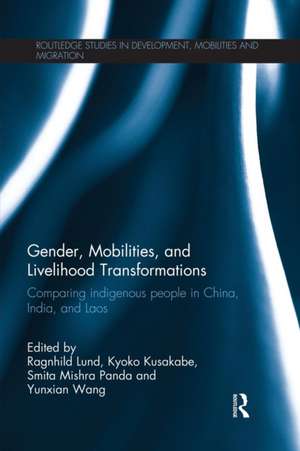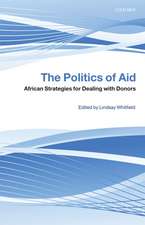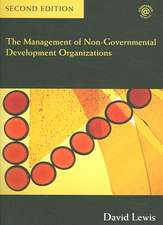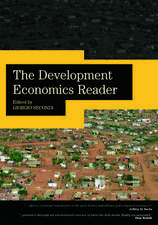Gender, Mobilities, and Livelihood Transformations: Comparing Indigenous People in China, India, and Laos: Routledge Studies in Development, Mobilities and Migration
Editat de Ragnhild Lund, Kyoko Kusakabe, Smita Mishra Panda, Yunxian Wangen Limba Engleză Paperback – 9 iun 2015
The book demonstrates how current neoliberal policies are making people increasingly on the move – whether voluntarily or forced, and whether individually, as family, or as whole communities – and how such mobility is changing the livelihoods of indigenous people, with particular focus on how these transformations are gendered. It queries how state policies and cross-border and cross-regional connections have shaped and redefined the livelihood patterns, rights and citizenship, identities, and gender relations of indigenous peoples. It also identifies the dynamic changes that indigenous men and women are facing, given rapid infrastructure improvements and commercialization and/or industrialization in their places of Environment.
With a focus on mobility, this innovative book gives students and researchers in development studies, gender studies, human geography, anthropology and Asian studies a more realistic assessment of peoples livelihood choices under a time of rapid transformation, and the knowledge produced may add value to present development policies and practices.
| Toate formatele și edițiile | Preț | Express |
|---|---|---|
| Paperback (1) | 277.61 lei 6-8 săpt. | |
| Taylor & Francis – 9 iun 2015 | 277.61 lei 6-8 săpt. | |
| Hardback (1) | 703.45 lei 6-8 săpt. | |
| Taylor & Francis – 27 aug 2013 | 703.45 lei 6-8 săpt. |
Din seria Routledge Studies in Development, Mobilities and Migration
-
 Preț: 266.20 lei
Preț: 266.20 lei - 8%
 Preț: 383.57 lei
Preț: 383.57 lei -
 Preț: 153.63 lei
Preț: 153.63 lei -
 Preț: 347.49 lei
Preț: 347.49 lei -
 Preț: 167.20 lei
Preț: 167.20 lei - 18%
 Preț: 1004.34 lei
Preț: 1004.34 lei -
 Preț: 381.43 lei
Preț: 381.43 lei -
 Preț: 386.57 lei
Preț: 386.57 lei - 18%
 Preț: 999.46 lei
Preț: 999.46 lei - 18%
 Preț: 263.20 lei
Preț: 263.20 lei -
 Preț: 460.69 lei
Preț: 460.69 lei -
 Preț: 387.16 lei
Preț: 387.16 lei - 17%
 Preț: 271.43 lei
Preț: 271.43 lei -
 Preț: 381.81 lei
Preț: 381.81 lei -
 Preț: 386.00 lei
Preț: 386.00 lei - 18%
 Preț: 1009.11 lei
Preț: 1009.11 lei - 16%
 Preț: 273.85 lei
Preț: 273.85 lei -
 Preț: 416.22 lei
Preț: 416.22 lei - 31%
 Preț: 764.20 lei
Preț: 764.20 lei -
 Preț: 353.94 lei
Preț: 353.94 lei - 19%
 Preț: 258.09 lei
Preț: 258.09 lei -
 Preț: 386.39 lei
Preț: 386.39 lei - 21%
 Preț: 257.11 lei
Preț: 257.11 lei -
 Preț: 389.11 lei
Preț: 389.11 lei - 18%
 Preț: 947.90 lei
Preț: 947.90 lei -
 Preț: 191.16 lei
Preț: 191.16 lei -
 Preț: 482.62 lei
Preț: 482.62 lei
Preț: 277.61 lei
Nou
Puncte Express: 416
Preț estimativ în valută:
53.13€ • 57.69$ • 44.63£
53.13€ • 57.69$ • 44.63£
Carte tipărită la comandă
Livrare economică 22 aprilie-06 mai
Preluare comenzi: 021 569.72.76
Specificații
ISBN-13: 9781138928398
ISBN-10: 1138928399
Pagini: 200
Dimensiuni: 156 x 234 x 11 mm
Greutate: 0.29 kg
Ediția:1
Editura: Taylor & Francis
Colecția Routledge
Seria Routledge Studies in Development, Mobilities and Migration
Locul publicării:Oxford, United Kingdom
ISBN-10: 1138928399
Pagini: 200
Dimensiuni: 156 x 234 x 11 mm
Greutate: 0.29 kg
Ediția:1
Editura: Taylor & Francis
Colecția Routledge
Seria Routledge Studies in Development, Mobilities and Migration
Locul publicării:Oxford, United Kingdom
Public țintă
PostgraduateCuprins
1. Gender, Mobilities and Livelihoods Transformations: An Introduction, Ragnhild Lund 2. Rethinking "Mobilities" - Exploring the Linkages between Development Issues, Marginalized Groups and Gender Tanu Priya Uteng 3. Mobile Livelihoods of Ethnic Minorities in Socio-economic Transformation in China: A Case of Yunnan , Yunxian Wang 4. Chinese Peasants in Transition, Thomas Sæthre Jakobsen 5. Exploring Mobile Livelihoods among Tribal Communities in Odisha: Gendered Insights and Outcomes, Smita Mishra Panda 6.Mobility Patterns and Gendered Practices among Soliga People in Karnataka, India, Anitha Venkatesh & Veena N 7. Gendered vulnerability of resettlement and restricted mobility of ethnic groups in Northern Laos,Kyoko Kusakabe and Sengkham Vongphakdy 8. Conclusion Ragnhild Lund
Descriere
In the era of globalization many minority populations are subject to marginalization and expulsion from their traditional habitats due to rapid economic restructuring and changing politico-spatial relations. This book presents an analytical framework for understanding how mobility is an inherent part of such changes.
The book demonstrates how current neoliberal policies are making people increasingly on the move – whether voluntarily or forced, and whether individually, as family, or as whole communities – and how such mobility is changing the livelihoods of indigenous people, with particular focus on how these transformations are gendered. It queries how state policies and cross-border and cross-regional connections have shaped and redefined the livelihood patterns, rights and citizenship, identities, and gender relations of indigenous peoples. It also identifies the dynamic changes that indigenous men and women are facing, given rapid infrastructure improvements and commercialization and/or industrialization in their places of Environment.
With a focus on mobility, this innovative book gives students and researchers in development studies, gender studies, human geography, anthropology and Asian studies a more realistic assessment of peoples livelihood choices under a time of rapid transformation, and the knowledge produced may add value to present development policies and practices.
The book demonstrates how current neoliberal policies are making people increasingly on the move – whether voluntarily or forced, and whether individually, as family, or as whole communities – and how such mobility is changing the livelihoods of indigenous people, with particular focus on how these transformations are gendered. It queries how state policies and cross-border and cross-regional connections have shaped and redefined the livelihood patterns, rights and citizenship, identities, and gender relations of indigenous peoples. It also identifies the dynamic changes that indigenous men and women are facing, given rapid infrastructure improvements and commercialization and/or industrialization in their places of Environment.
With a focus on mobility, this innovative book gives students and researchers in development studies, gender studies, human geography, anthropology and Asian studies a more realistic assessment of peoples livelihood choices under a time of rapid transformation, and the knowledge produced may add value to present development policies and practices.











